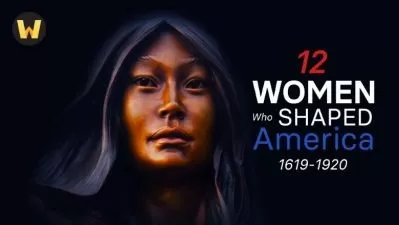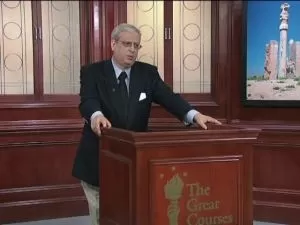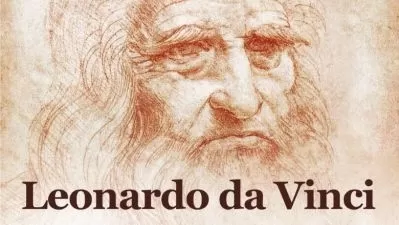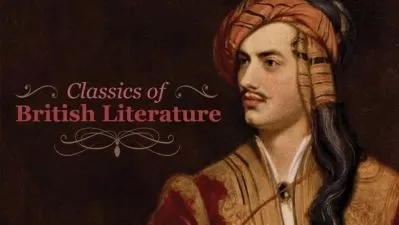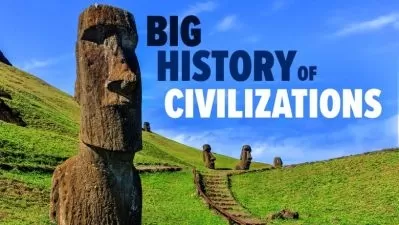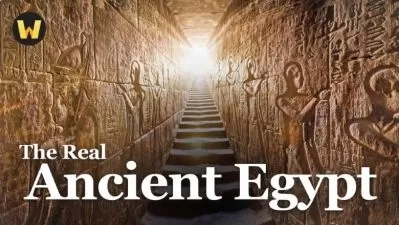Iliad of Homer
Elizabeth Vandiver
6:01:32
Description
When John Keats first read Chapman's translation of the epics of "deep-brow'd Homer," he was so overwhelmed, so overcome with the joy of discovery, that he compared his experience to finding "a new planet." When you join Professor Elizabeth Vandiver for these lectures on the Iliad, you come to understand what enthralled Keats and has gripped so many readers of Homer.
Dr. Vandiver is a recipient of the American Philological Association's Excellence in Teaching Award—the most prestigious teaching award available to American classicists—and several other major honors for teaching excellence.
Her compelling look at this epic masterpiece—whether it is the work of many or indeed the "vision" of a blind poet who nevertheless saw more deeply into the human heart than almost anyone before or since—demonstrates why she is held in such immense regard.
Share Homer's Compelling Meditation on the Human Condition
Professor Vandiver makes it vividly clear why, after almost 3,000 years, the Iliad remains not only among the greatest adventure stories ever told, but also one of the most compelling meditations on the human condition ever written.
Indeed, it is probably true to say that only the Bible rivals Homer for sheer depth and scope of cultural and literary influence.
How is this so?
At first glance, the Iliad tells of a long-dead epoch that seems utterly alien to us. Indeed, the Bronze Age Aegean was a distant memory even to the original audience for this great work.
Yet the grandeur and immediacy of the Homeric world seem to defy time and space.
- He depicts a legendary era in brilliant, unforgettable hues.
- He peoples it with towering heroes who thirst for honor, fight shattering wars, and deal face-to-face with gods.
- He acts out, in words memorized and passed on verbally long before they were ever set to paper, mankind's awesome passions for glory, love, and vengeance.
An Inquiry into Timeless Human Issues
Or perhaps age seems only to burnish the luster of the Iliad precisely because of its very strangeness and distance, which throw so sharply into focus the timeless human issues it raises.
These issues are evoked by the power of a single dramatic question: Why does Achilles rage?
Around these questions Homer weaves a narrative that makes us ask many questions:
- What are the limits of our freedom?
- Who or what shapes our actions and our ends?
- Is there a common humanity that we share, or is life only "a constant seeking of power after power"?
- What holds people together and keeps them going in extreme situations such as war?
- Why do we love our own so strongly?
- Where is the line between justice and revenge?
- And above all, what does it mean to be alive?
Meticulous and Insightful
Professor Vandiver builds her analysis skillfully around meticulous, insightful examinations of the most important episodes in the Iliad.
- She explains the cultural assumptions that lie behind Homer's lines, and you join her in weighing the basic critical and interpretive issues.
- She probes the relationship of this great epic to the tradition of orally transmitted poetry and surveys the archaeological evidence for an actual conflict.
- She repeatedly visits the Iliad's overriding theme of what it means to be human and what the Iliad has to say about the human condition.
She explains with passion and clarity why Homer remains our contemporary.
Moreover, with her skillful organization and way of looking at the events and intents of this great masterpiece, she gives you a key to heightened enjoyment and comprehension in all of your encounters with literature.
A Clearly Organized and Comprehensive Examination
Lecture 1 sets the stage for our reading of the Iliad by providing an introduction to the plan of the course and summarizing the mythological background assumed by both the Iliad and the Odyssey (also available as a course taught by Dr. Vandiver).
Lecture 2 addresses the question of the 400- to 500-year gap between the events described in the Iliad (and, subsequently, the Odyssey) and the time when they were first written down.
It describes the Iliad's relationship to traditional orally transmitted poetry, and considers the implications of that oral tradition for the question of who "Homer" was.
Lectures 3-12 address the plot, characters, and interpretations of the Iliad itself. Each focuses on a particular scene, character, or theme as we read through the Iliad.
Lecture 3 introduces the cultural concepts of kleos (glory) and timê (honor) and explains their significance for understanding the wrath of Achilles.
Lecture 4 moves inside the walls of Troy to discuss Homer's presentation of the Trojans as sympathetic characters, rather than stereotypical enemies.
Lecture 5 looks in detail at Book IX of the Iliad, where three of Achilles's comrades try to persuade him to return to battle, and discusses how the concepts of kleos and timê factor into his refusal to do so.
Lecture 6 is devoted to a fuller discussion of the concept of kleos, which demonstrates that it is one of the key elements in the Iliad 's examination of the human condition.
Lecture 7 turns to an examination of the gods in Homer, discussing what types of beings they are and what their presence in the narrative adds to the Iliad.
Lectures 8 and 9 give a detailed reading of the most important events of the day of Hektor's glory and Patroklos's death—the Iliad 's longest day, which lasts from Book XI through Book XVIII—with Lecture 8 focusing on Hektor and Lecture 9 on Patroklos.
Lecture 10 covers Achilles's return to battle, discussing the implications of his actions, his divinely made armor, and his refusal to bury the dead Patroklos.
Lecture 11 examines Hektor and Achilles together, highlighting the contrasting elements in their characters and the inevitability of their final encounter in battle.
Lecture 12 concludes the course with a discussion of the resolution of the Iliad, which is brought about by Achilles's encounter with his dead enemy, Hektor's aged father, King Priam.
The encounter of these two enemies offers one final opportunity to take from this great work a true understanding of the nature of mortality, the Iliad's constant underlying theme.
More details
User Reviews
Rating
Elizabeth Vandiver
Instructor's CoursesDr. Elizabeth Vandiver is Professor of Classics and Clement Biddle Penrose Professor of Latin at Whitman College in Walla Walla, Washington. She was formerly Director of the Honors Humanities program at the University of Maryland at College Park, where she also taught in the Department of Classics. She completed her undergraduate work at Shimer College and went on to earn her M.A. and Ph.D. from The University of Texas at Austin.
Prior to taking her position at Maryland, she held visiting professorships at Northwestern University, the University of Georgia, the Intercollegiate Center for Classical Studies in Rome, Loyola University of New Orleans, and Utah State University.
In 1998, The American Philological Association recognized her achievements as a lecturer with its Excellence in Teaching Award, the most prestigious teaching prize given to American classicists. In 2013 she received Whitman College's G. Thomas Edwards Award for Excellence in Teaching and Scholarship. Her other awards include the Northwestern University Department of Classics Excellence in Teaching Award and two University of Georgia Outstanding Honors Professor Awards.
Professor Vandiver is the author of Stand in the Trench, Achilles: Classical Receptions in British Poetry of the Great War and Heroes in Herodotus: The Interaction of Myth and History. She has also written numerous articles and has delivered many papers at national and international conferences.

The Great Courses
View courses The Great Courses- language english
- Training sessions 12
- duration 6:01:32
- English subtitles has
- Release Date 2023/04/27






